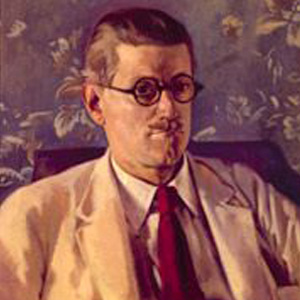
With Blooms day fast approaching I thought it would be a good time to highlight some of the James Joyce adaptions that I’ve worked on.
Ivy Day In The Committee Room
In a committee room, Mat O’Connor, a canvasser for Richard Tierney, a candidate in an upcoming municipal election, discusses child-rearing with Old Jack, who tries to keep a fire going. Joe Hynes, another canvasser, arrives and needles O’Connor on whether he’s been paid for his work yet. He proceeds to defend rival candidate Colgan’s working class background and maintains that Tierney, although a Nationalist, will likely present a welcome address at the upcoming visit of King Edward VII. When Hynes points out that it is Ivy Day, a commemoration of Charles Stewart Parnell, a nostalgic silence fills the room. Another canvasser, John Henchy, enters and derides Tierney for not having paid him yet. When Hynes leaves, Henchy voices a suspicion that the man is a spy for Colgan. Henchy badmouths another canvasser, Crofton, just before Crofton himself enters with Lyons. Crofton had worked for the Conservative candidate until the party withdrew and gave their support to Tierney.
The talk of politics drifts to Charles Stewart Parnell, who has his defenders and detractors in the room. Hynes returns and is encouraged to read his sentimental poem dedicated to Parnell. The poem is highly critical of those who betrayed him, including the Roman Catholic Church, and places Parnell among the ancient heroes of Ireland. All applaud the performance and seem to forget their differences for the moment.
A Painful Case
Mr. Duffy, a middle-aged bank cashier, deliberately lives in an isolated suburb of Dublin. He is characterized as very meticulous and ordered and has little social contact. At a concert one night, Duffy makes the acquaintance of Mrs. Emily Sinico, a married mother. They start up a relationship that is innocent enough to be condoned by Mrs. Sinico’s husband, who believes the two’s discussions revolve mostly around his daughter and the possibility of a relationship between her and Duffy. The two draw closer together, and one night Mrs. Sinico impulsively takes his hand and presses it to her cheek, but Duffy is not pleased at the development and ends their meetings. Four years later, he reads that Mrs. Sinico has been struck by a train and killed. The newspaper article, the title of which provides the title of the story, contains an account by her husband, who states that she began drinking two years ago. The details of the accident suggest that she may have committed suicide. He reacts at first with revulsion, concluding that some inherent weakness led to her drinking and the accident, but he slowly comes to believe that it was his rejection that condemned her to solitude and death. He reflects on his own loneliness: “No one wanted him; he was outcast from life’s feast.” The story ends with Duffy listening to the silence of the surrounding night atop a hill overlooking Dublin where he and Sinico used to sit down and talk, where he realizes just how lonely he really is.
‘The St. James Rejoice Boarding House’ by Jack Byrne
A half hour radio drama adaptation of James Joyce’s ‘The Boarding House’ from Dubliners, this years Dublin City Libraries ‘One City, One Book’ choice. The storyline is original and deals with the tribulations of a male boarder in the titled boarding house. The house is run by an old haridan and her flighty daughter who eventually beguiles the boarder into bed and an unwanted pregnancy.
